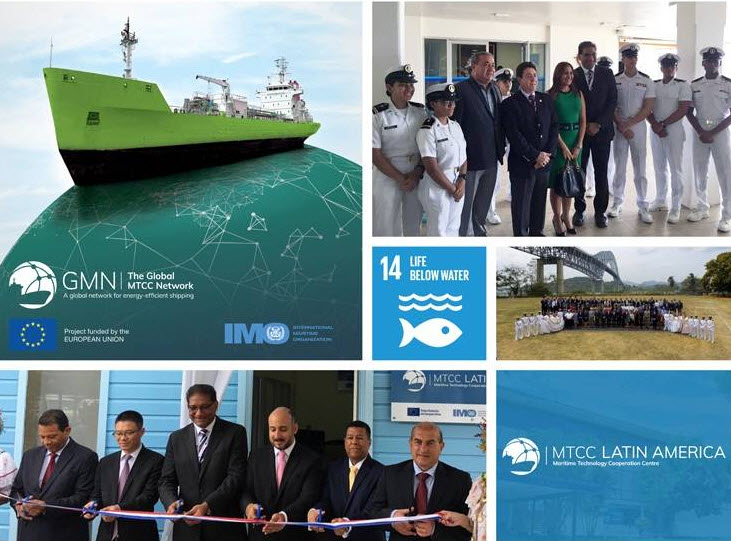SeaTrade Maritme News reports.
The regional Maritime Technology Cooperation Centre (MTCC) for the Latin America region, MTCC-Latin America has been inaugurated in Panama by Panama’s Minister of Maritime Affairs Jorge Barakat and the IMO deputy director of Environment Dr Jose Matheickhal.
They were joined by Giovanni Di Girolamowith the European Union and Dr Eladio Penaloza, who will head MTCC, and the International Maritime University of Panama (UMIP) dean Aladar Rodriguez.
MTCC will be located at the International Maritime University of Panama; it will be funded by the EU and implemented by the IMO to help mitigate the harmful effects of climate change under the Global MTTC Network (GMN) project. Panama’s MTCC joins MTCCs in Africa, Asia and the Caribbean.
MTCC-Panama’s director Dr Eladio Penaloza is a veteran of the maritime sector having graduated from Chile’s Naval Academy as an engineer. He represented Panama at the IMO from 1998 to 2000 and participated to the creation of the International Maritime University of Panama which is a public university funded by the Panamanian Government and, by law, is the official higher education institution specialised in maritime education and training of the Republic of Panama. The university’s scope involves all areas related to the maritime sector, including all aspects of shipping, maritime infrastructure and services, coastal, marine, and environmental protection.
The MTCCs will act as focal point for:
• Improving capability in the region – by working with maritime administrations, port authorities, other relevant government departments and related shipping stakeholders to facilitate compliance with international regulations on energy efficiency for ships
• Promoting the uptake of low-carbon technologies and operations in the maritime sector through pilot projects
• Raising awareness about policies, strategies and measures for the reduction of ghg and other emissions from the maritime transport sector
• Demonstrating a pilot-scale system for collecting data and reporting on ships’ fuel consumption to improve ship owners’ and maritime administrations’ understanding in this regard, and
• Developing and implementing strategies to sustain the impact of MTCC results and activities beyond the project time-line.
